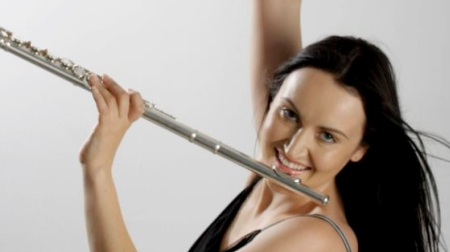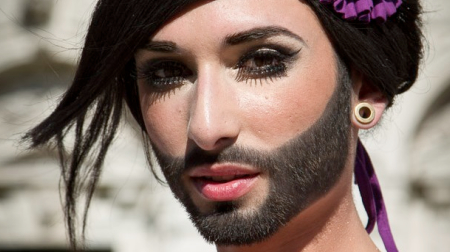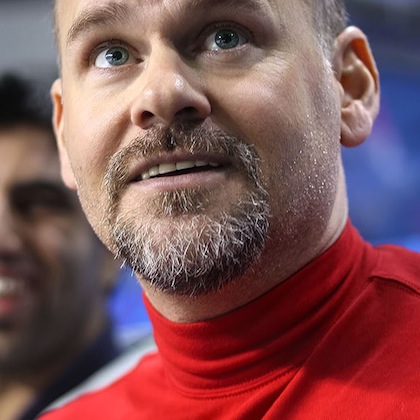ESC Insight’s guardian of the numbers John Egan looks back at two semi-finals full of drama, intrigue, and excitement, to find some of the interesting stories and potential form for the 2014 Eurovision Song Contest.
Returning Artists
All of our returning artists have so far fared well. San Marino’s Valentina Monetta defied the pundits and qualified with her third entry in three consecutive years, converting ‘Maybe‘ to ‘Defnitely‘. It’s worth nothing the last artist to get lucky on his third try was Austria’s Udo Jurgens, who won with ‘Merci Cherie‘ in 1966 (which saw the United Kingdom close the Contest…) In fact, all of the artists who performed in three consecutive Contests won at least once – the other two being Lys Assia and Corry Brokken. Though those were all jury victories in years with a dozen or so entries (rather than the thirty five or more we see in the modern Contest).

Merci, Udo Jurgens
Paula Selling and Ovi are back representing Romania, and have qualified with ‘Miracle‘. They’ll be performing sixth, which implies they’ve been buried in the first half. Rather intriguingly, Russia’s Tolmachevy Sisters – winners of the 2006 Junior Eurovision Song Contest – have transitioned easily to the proper Contest and will be singing ‘Shine‘ in the Grand Finalon Saturday night. With the fifteenth slot they’re in a better position than Romania—but not in one of the prime 16-22 slots from which most winners have come in the semi-final fuelled era.
Singer-songwriters Predominate
If we look at who’s appearing in this year’s Grand Final, one could say that those songwriters who are singing their own music are doing particularly well. All of the prequalified finallists (the Big Five plus last year’s winner Denmark) are artists who have co-written their entry. Of the other 20 entries, only a handful were not: namely Austria, San Marino, Sweden, Russia, Norway, and Azerbaijan.
That means it’s very likely that whomever hoists the trophy on Saturday night will be a double winner for the first time since 2009.
Diasporas And Blocs
One of the reasons for bringing in a mixed televoting and jury result was to soften what was perceived to be a trend towards voting for neighbours (often former fellow citizens) regardless of the calibre of a given year’s entries. There have also been branches of the Eurovision family tree where cousins seem to support each other rather blindly. With the creation of ‘pots’ and then splitting each pot across the semi-finals, this seems to improved the qualification outcomes. Countries that have struggled to qualify are sometimes doing so; countries that always qualified less often do so.
From the Balkan Bloc, which includes the ex-Yugoslavian countries, plus Albania, and Greece, we had several missing entries (Bulgaria, Bosnia, Croatia and Serbia). Of the rest, Montenegro qualified for the first time in four tries. Macedonia did not qualify; Albania didn’t either, and both are running at about a 50/50 qualification result overall. Slovenia, though one of the constituent republics of Yugoslavia has always been a marginal member of the bloc—it somewhat supports its neighbours, but they tend to ignore Slovenia. Which makes Tinkara’s qualification all the more impressive. Romania and Greece retain their perfect qualification records.

…and there was this one time, at Eurovision….
The ex-Soviet countries have done very well. Armenia, Azerbaijan, Russia, Ukraine, and Belarus have all qualified for Saturday night. Ukraine and Russia also both have perfect qualification records since 2004, in fact. Georgia and the three Baltic states (Lithuania, Latvia and Estonia) all missed out this year, which means it’s only the second Final without a Baltic entry since 2004.
The Nordic bloc is a bit more fraught. Most years at least one member gets left behind, usually either Finland or Estonia. This year was Estonia’s turn. To be fair, none of the Nordics – Sweden, Norway, Denmark, Iceland, Finland and Estonia – have a perfect qualification record. It’s a bloc that ostensibly considers quality whilst nonetheless ‘appreciating’ its members.
Politics
The major politic event overshadowing this year’s Eurovision is the war in Ukraine. Since Crimea is still using the Ukrainian telephone system its televoters are being counted as Ukrainian rather than Russian—which doubtless helped Russia in the first semi-final. When Ukraine qualified the audience roared; when Russia did they booed. Let’s see how it unfolds Saturday night. It seems unfair to channel any negativity towards a couple of teenagers, however.
Austria’s participation adds another element of politics—or, perhaps more precisely, an element of sociopolitical values. Conchita Wurst’s “bearded lady” is not the first drag act at Eurovision, but she’s the first act to embrace feminine sensuality rather than focus on camp humour. DQ, Verka Serduchka and Sestre were also more of the camp school of drag. Their emphasis on humour made them somewhat safer for a Saturday evening light entertainment show. Conchita is a diva—and we’ve not seen any thing like her before.

Conchita Wurst
No, not even in 1998. Dana International is a (transgender) woman. Her controversy was in being ‘out’ as trans—something out of her control, since Israel won’t give her a passport with her proper gender listed. Certainly she “worked” this to get some attention before the Contest in Birmingham. But an Israeli woman won the Eurovision in 1998.









I thought there were no baltics in 2010?
yeah, you’re right, it’s 2010, they’re not the only ones to have made the mistake….
I’m happy to read that so many of this year’s artists have (co-) written their own songs! I wasn’t aware there were only so few songs that were written by someone else – glad it’s not a question of which Swedish song will win this time. 🙂
And Norway’s entry was written by Carl’s cousin, so that’s at least one more keeping it in the family!
And even Austria’s song was very much the singer’s choice and interpretation.